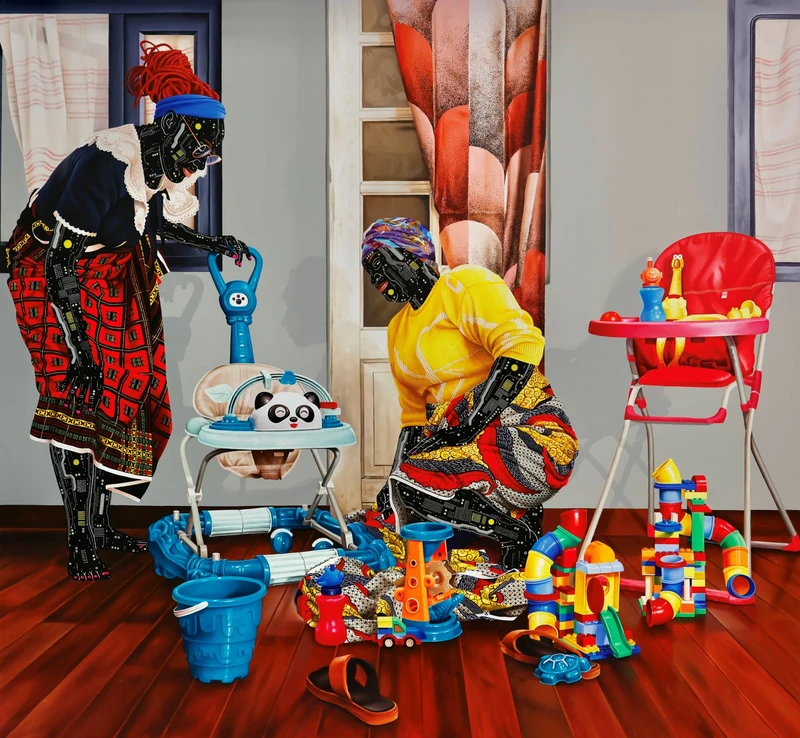ArchiveExhibition
Eddy Kamuanga Ilunga: Nature Morte
14 Nov 2024-25 Jan 2025
PV 13 Nov 2024, 6-8.30pm
October Gallery
London WC1N 3AL

Eddy Kamuanga Ilunga, Energie Red (Red Energy), 2024, Acrylic on canvas, 188 cm x 203 cm.. Credit: © Eddy Kamuanga Ilunga. Courtesy the Artist and October Gallery, London.

